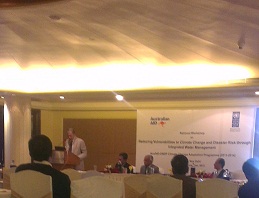India
Integrated Power Policy - A framework for people-centric, environment-friendly and a sustainable power policy - A book by Shankar Sharma
Posted on 29 Dec, 2012 11:57 AMThe primary objectives of this book are:
Conservation across landscapes: A study of the various mechanisms of biodiversity conservation in India
Posted on 28 Dec, 2012 02:38 PMChapter 1: Background
Biodiversity conservation has normally followed one of two approaches-

Twelfth five year plan 2012-17 documents by the Planning Commission
Posted on 25 Dec, 2012 10:44 AM1. Volume I: Faster, more inclusive and sustainable growth
The document consists of 11 chapters describing the broad vision and aspirations which the Twelfth Plan seeks to fulfil, as it aims to reverse deceleration in growth and targets a Gross Domestic Product (GDP) growth rate of 8.2 per cent.

The issue of food security in India - Case of sodic land reclamation in Uttar Pradesh to preserve the health and productivity of land resources
Posted on 22 Dec, 2012 12:14 PMThe issues surrounding the food security bill, which proposes to confer double benefits-procurement at a remunerative price for the public distribution system are dealt with. This is followed by a discussion on the contribution of usar (sodic land) development to food security in the state of Uttar Pradesh.
India's sanitation spot: Moving towards non-water based solutions in the future requires careful planning
Posted on 20 Dec, 2012 11:43 AM
Philippe Cullet
Seeking Sanctuary: a TEDxASB talk by Bittu Sahgal, editor of Sanctuary Asia
Posted on 20 Dec, 2012 09:20 AMClimate change adaptation in water management for food security - A consultation meeting by India Water Partnership
Posted on 19 Dec, 2012 09:20 AMThe meeting held on 22nd November, 2012 at the Institute for Human Development, New Delhi was followed by a discussion which included comments and suggestions of the experts and participants. The meeting was chaired by Prof. S R Hashim, President, India Water Partnership who was accompanied by Dr.

